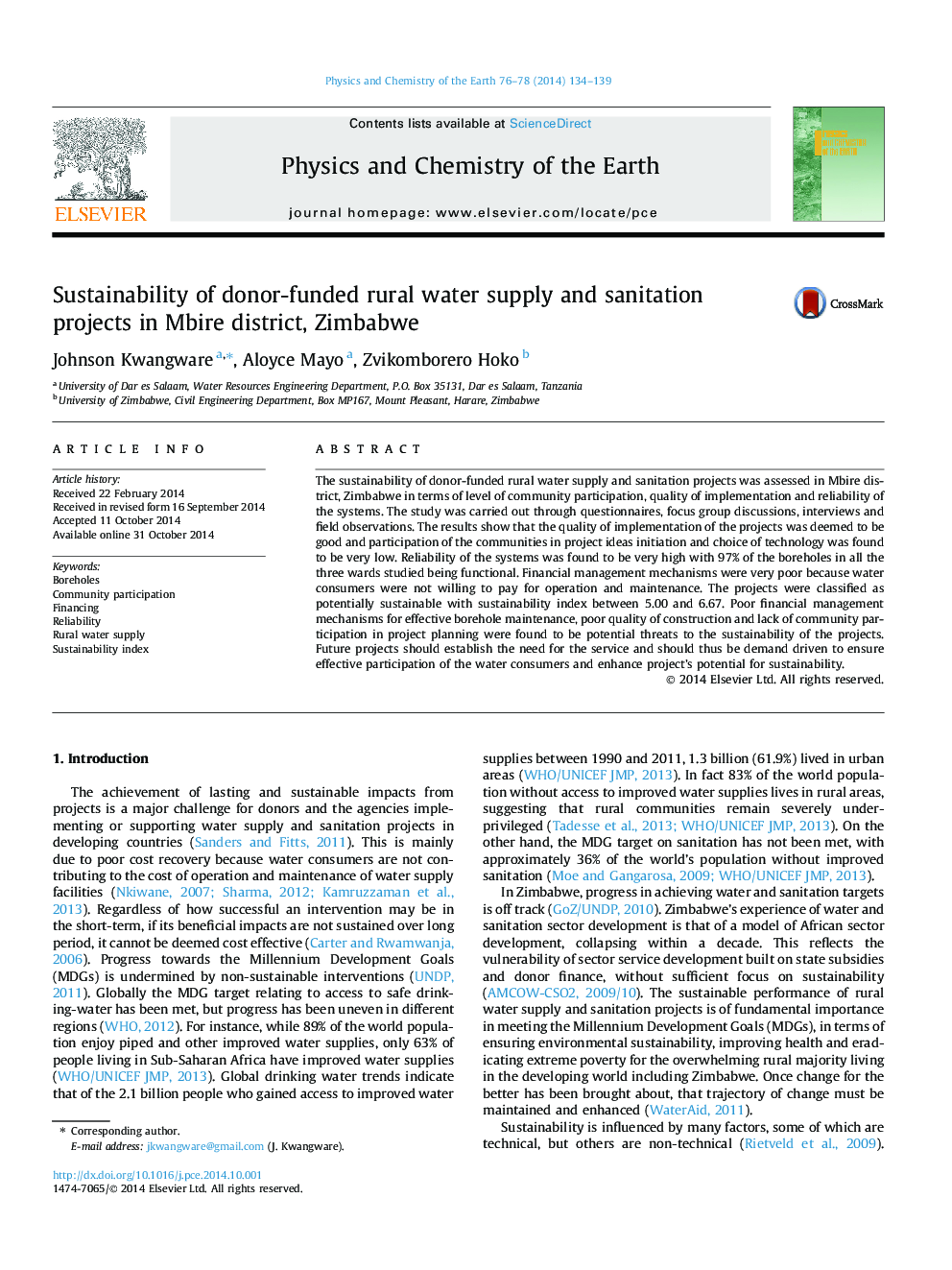| Article ID | Journal | Published Year | Pages | File Type |
|---|---|---|---|---|
| 4720970 | Physics and Chemistry of the Earth, Parts A/B/C | 2014 | 6 Pages |
•Poor quality of construction and lack of users’ sense of ownership of the projects affects sustainability.•Social, economic and cultural reasons limit the women participation in water committees.•Quality of implementation is affected by hardware and software aspects of the projects.•Poor financial mechanisms and poor quality of construction are potential threats to sustainability.
The sustainability of donor-funded rural water supply and sanitation projects was assessed in Mbire district, Zimbabwe in terms of level of community participation, quality of implementation and reliability of the systems. The study was carried out through questionnaires, focus group discussions, interviews and field observations. The results show that the quality of implementation of the projects was deemed to be good and participation of the communities in project ideas initiation and choice of technology was found to be very low. Reliability of the systems was found to be very high with 97% of the boreholes in all the three wards studied being functional. Financial management mechanisms were very poor because water consumers were not willing to pay for operation and maintenance. The projects were classified as potentially sustainable with sustainability index between 5.00 and 6.67. Poor financial management mechanisms for effective borehole maintenance, poor quality of construction and lack of community participation in project planning were found to be potential threats to the sustainability of the projects. Future projects should establish the need for the service and should thus be demand driven to ensure effective participation of the water consumers and enhance project’s potential for sustainability.
